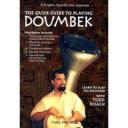 When he tired of the expense, the navel-gazing, and the circular conversations in the weekly sessions of therapy, his bright idea was to revive his interest in drumming, and what he lacked in actual ability he could always compensate for with enthusiasm and volume. This was not music to the ears of his wife, for if there was one trait she brought from her four-year tenure at UC Santa Cruz, other than a healthy respect for diversity and an unhealthy interest in thrift-store bargains, it was her fear of drum circles. But a drummer in Berkeley, like an addict in a methadone ward, needs more than words to make him stop, and besides, it felt so good.
When he tired of the expense, the navel-gazing, and the circular conversations in the weekly sessions of therapy, his bright idea was to revive his interest in drumming, and what he lacked in actual ability he could always compensate for with enthusiasm and volume. This was not music to the ears of his wife, for if there was one trait she brought from her four-year tenure at UC Santa Cruz, other than a healthy respect for diversity and an unhealthy interest in thrift-store bargains, it was her fear of drum circles. But a drummer in Berkeley, like an addict in a methadone ward, needs more than words to make him stop, and besides, it felt so good.
It brought him back to when he was fifteen, staring in the mirror with sticks in hand, thinking, well, they may think I live in the library, I may be the captain of the debate team, but damn it, I will be the next Zigaboo Modeliste.
They met every Monday. They studied a different Third World rhythm every month, and to assuage the guilt that accompanied their idleness, they tried to discuss the human rights problems of every country whose rhythms they clumsily appropriated. And it therefore came to pass that blond-haired, blue-eyed misapplications of son and rhumba rhythms were downed in minty mojitos and debates about the legacy of Castro. The rat-a-tatting of failed doumbek rhythms led to hooka pipe and hash-intensified meanderings about the problem of Palestine, the multiple meanings of Zionism, the dreams of diaspora, and the wandering of Western Sahara. Borderline unlistenable tappings on a tabla, coupled with too many six-packs of Singha beer, led his little circle to tie themselves in knots over nuclear proliferation between India and Pakistan and the unresolved status of Kashmir. The hollow echo of the talking drum, and the ingestion of a green substance he could barely hold, much less identify, left him with a vague sense that something was amiss in the slums of Lagos. Fumbling attempts at samba rhythms brought an appreciation of the old souls of Bahia and a sense of wonder about the Brazilian rainforest. Then came the steel drums of Trinidad, the reverb of reggae, the deluge of rum punch, and the sudden desire to atone for 500 years of colonialism in the Caribbean.
He couldn’t stop himself. He may have been white, and born to parents who revered Pat Boone and Andy Williams, but he was damned if he wouldn’t at least try to understand the world and its conversant rhymes, the march and pacing and order that spoke a universal language in which he was only a beginner, but determined to try.
The restless searching finally ended the week he saw his Middle Eastern drumming teacher play in a large festival with her star pupil, who performed the same rhythm he had learned in class, yet flawlessly and five times faster. The star pupil was eight. He went home, put his sticks and worldwide collection of percussion instruments into a box in the basement, and opened a book for the first time in months.